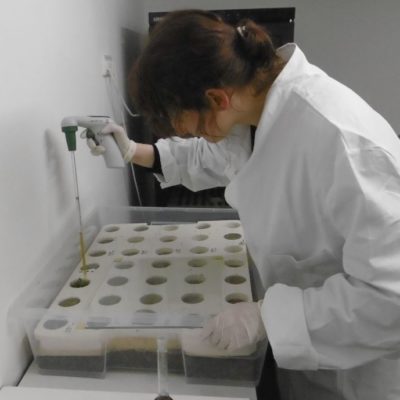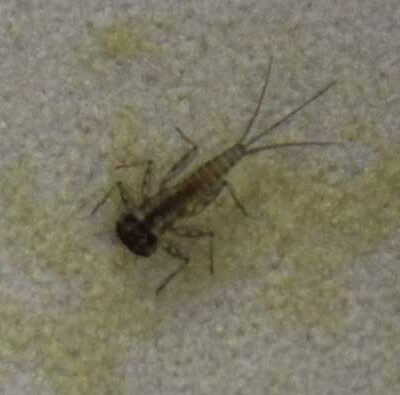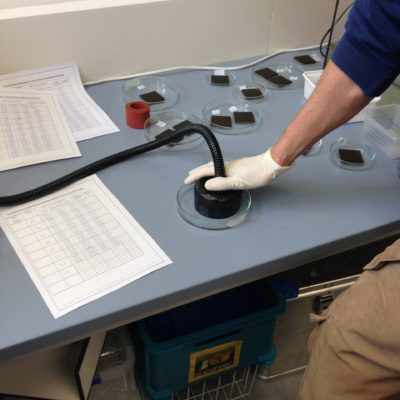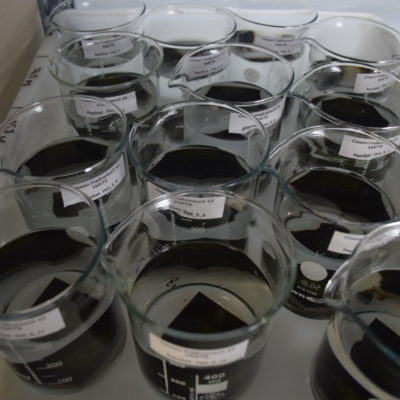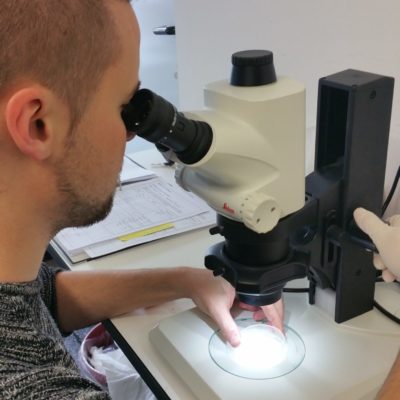The requirements in ecological risk assessment require the use of ecosystem-relevant and vulnerable species and communities as well as the extension to chronic lethal and sublethal endpoints. In this context, we face the challenge of developing test systems in which natural species communities are represented or in which relevant endpoints (such as mortality, feeding rates, growth, reproduction) are reproducibly collected, and at the same time the test conditions are optimized to maintain a minimum stress level for the sensitive test organisms.
Ecotoxicological test development
More ecology in risk assessment
We are developing adapted ecotoxicological tests, taking into account sensitive species, to allow a more realistic environmental risk assessment.
More ecology in risk assessment
Single-species testing of aquatic invertebrates
Due to their sensitivity to pesticides, representatives of the EPT taxa (e.g. Cloeon dipterum, Rhithrogena semicolorata) and other species such as the phantom midge Chaoborus crystallinus and the amphipod Gammarus sp. are the subject of intensive research at gaiac. For these organisms, we investigate acute and chronic mortality as well as sublethal effects such as feeding inhibition and developmental delay.
In addition, we also offer complex test scenarios (e.g. Daphnia population tests with sediment) for standard species.
Test procedures for plankton and mesofauna communities
As a step between single-species laboratory tests and long-lasting, complex field experiments, we have developed test procedures for aquatic phyto- and zooplankton communities or terrestrial collembola/mite communities in recent years. These tests offer the possibility to investigate direct effects on a broader spectrum of species under more realistic conditions, and to analyse indirect effects by competition at the same time.


